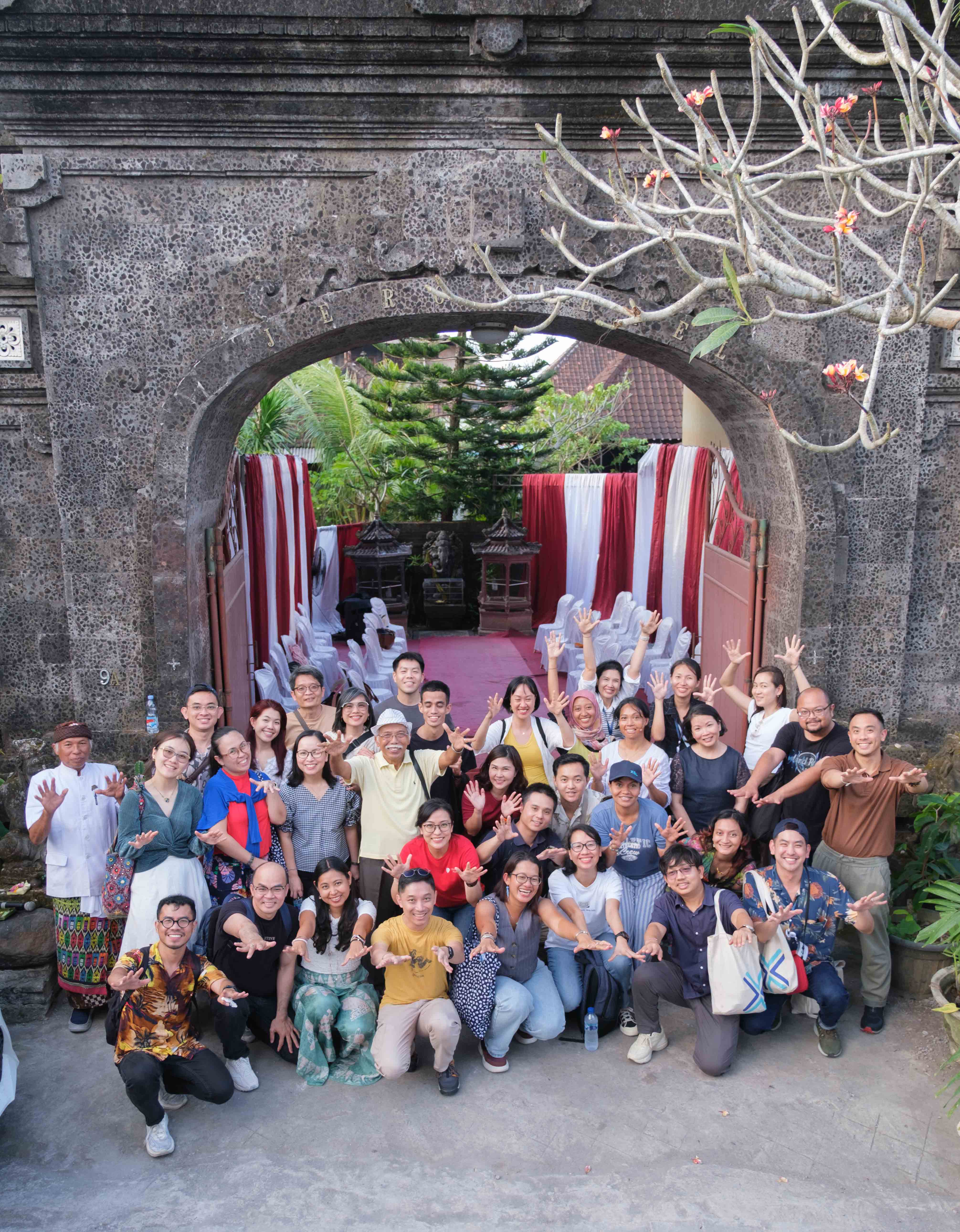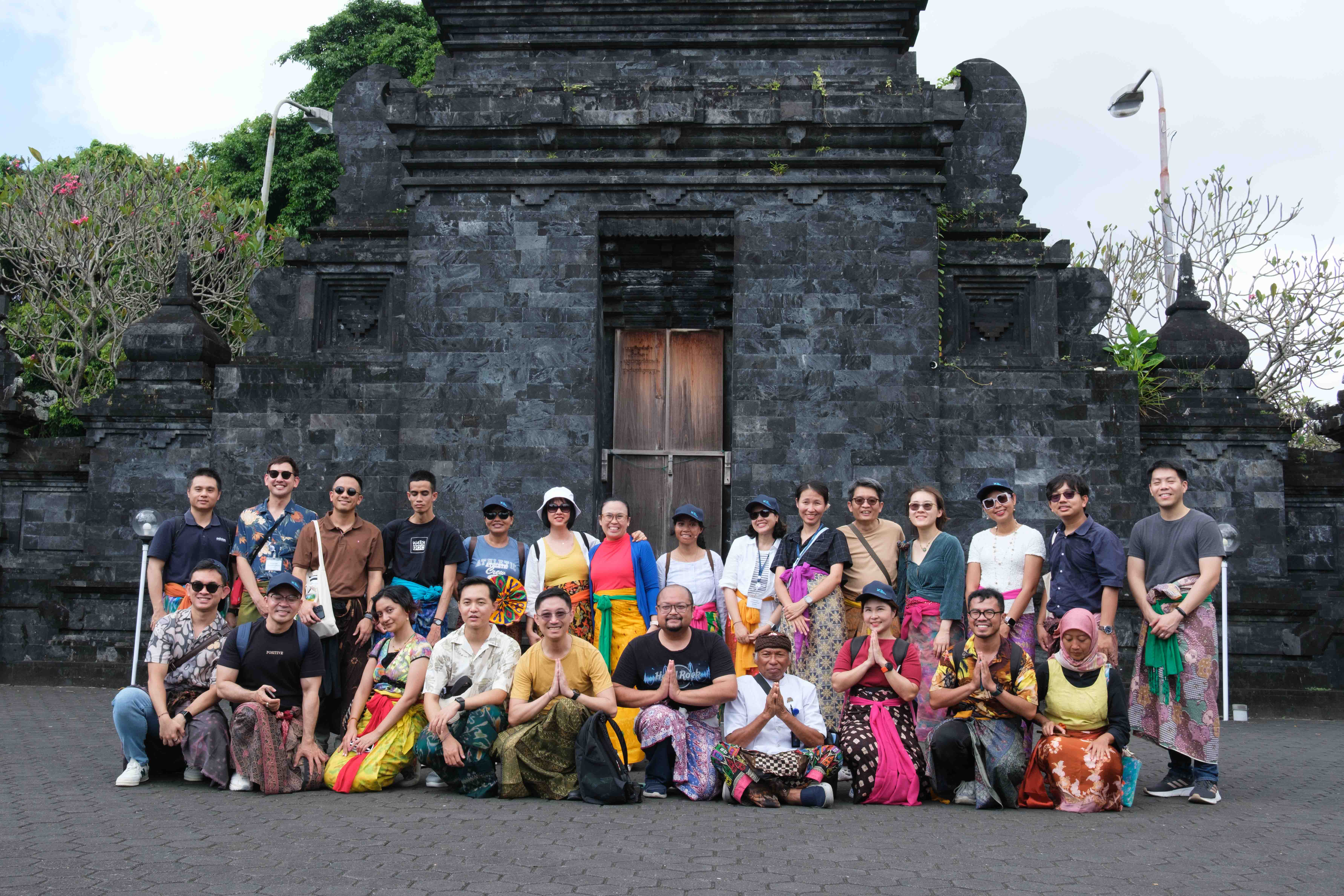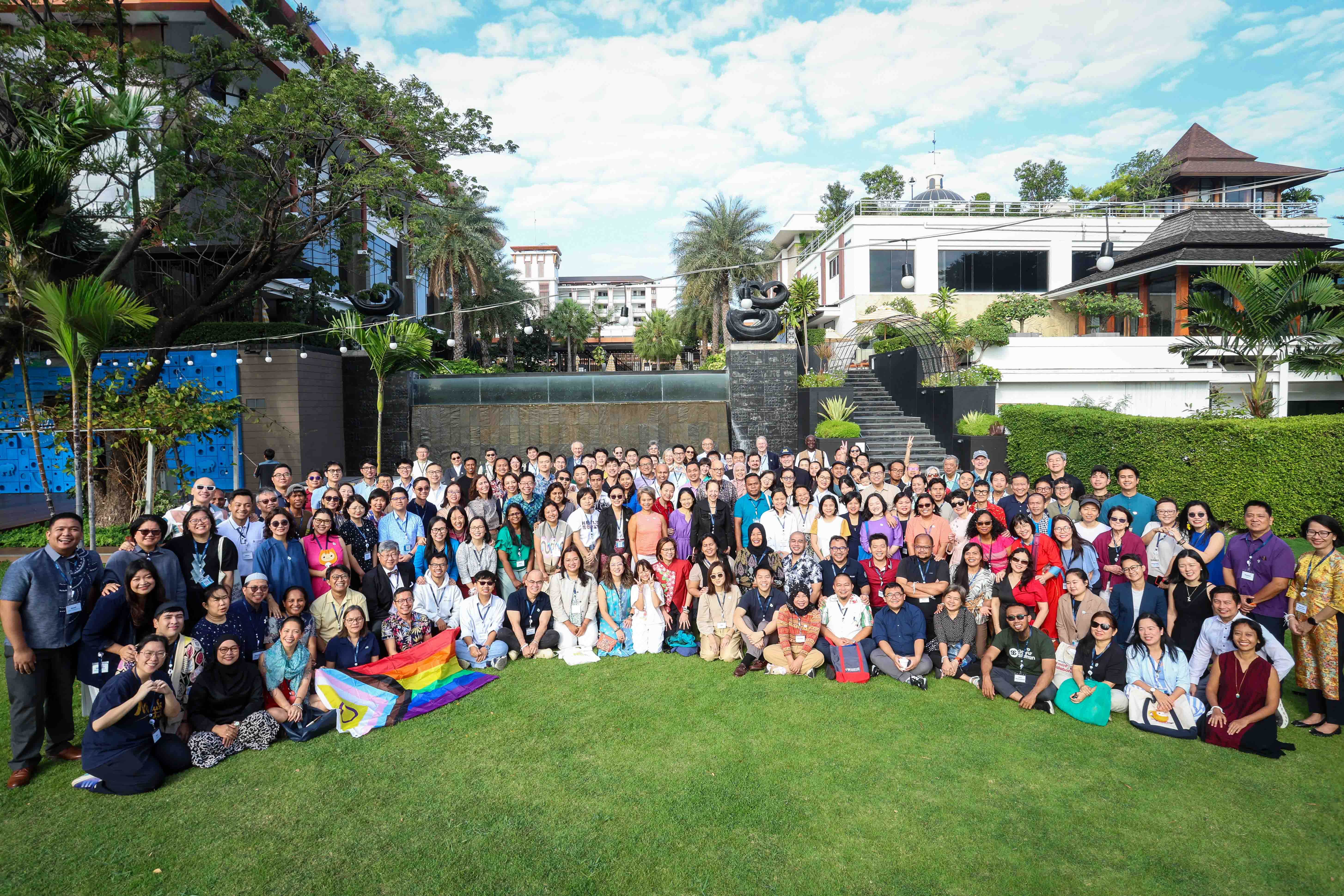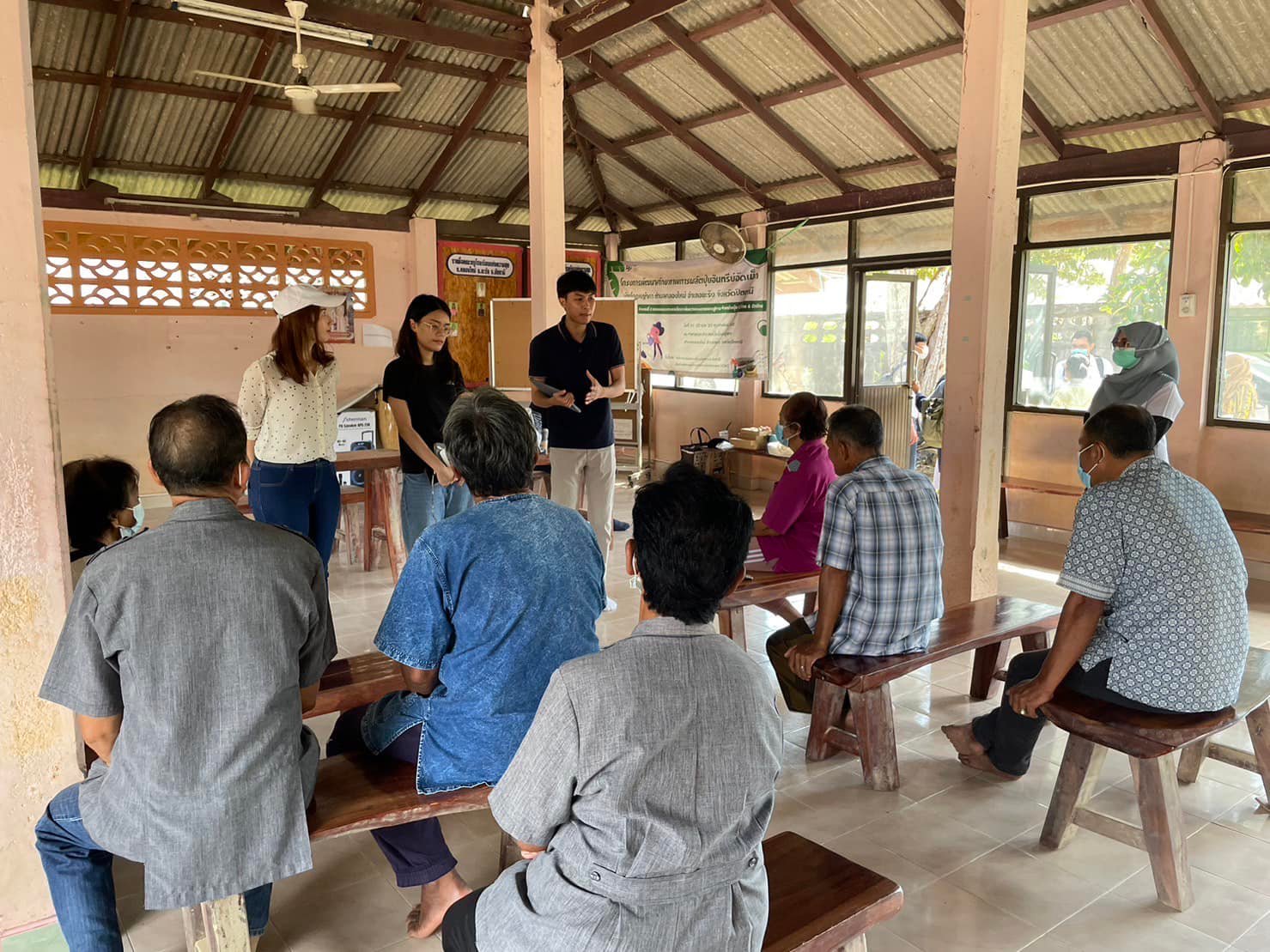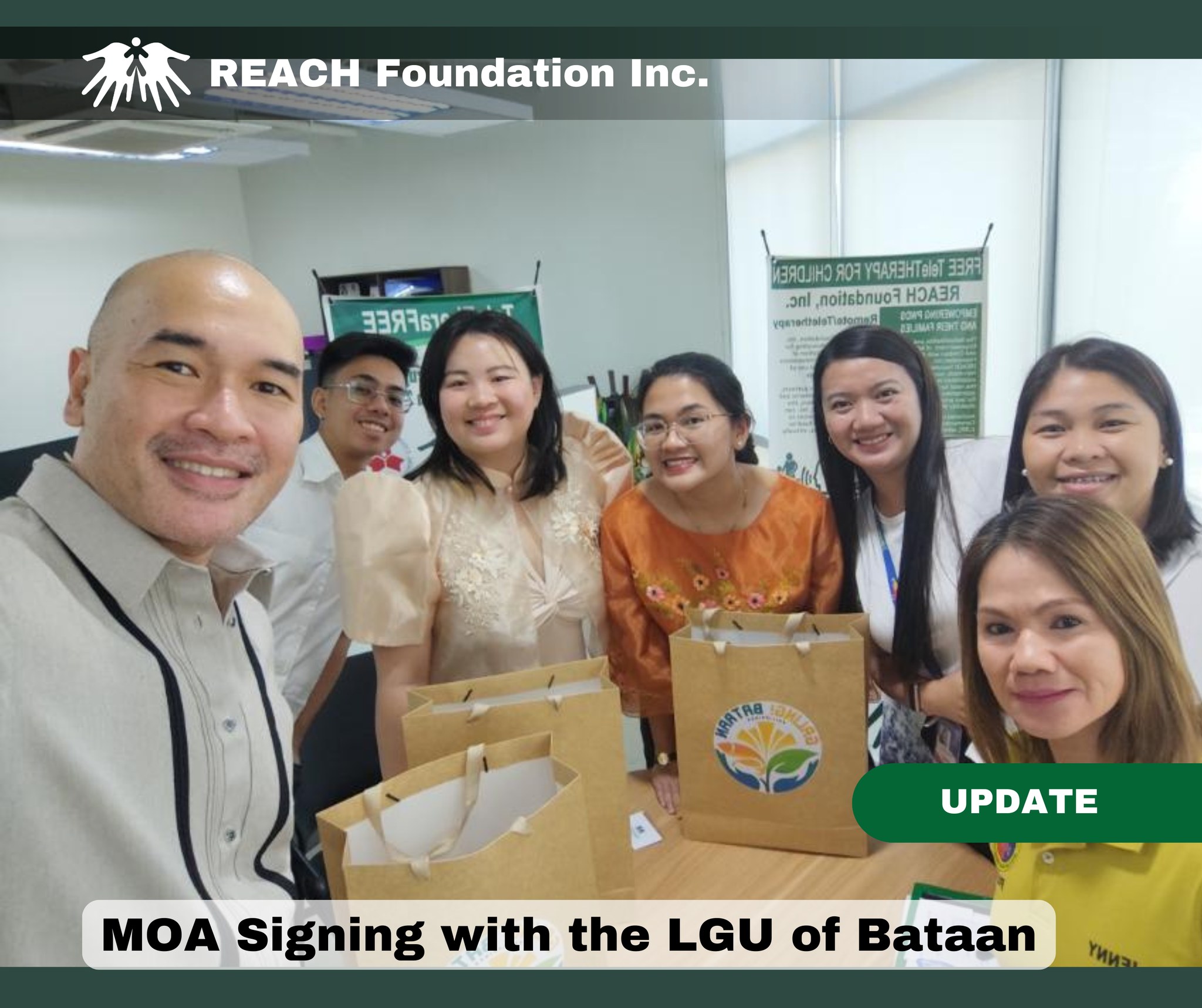Asia Trek: Learning, Bonding, and Bearing Witness in Indonesia
Asia Trek: Learning, Bonding, and Bearing Witness in Indonesia
From August 2-9th, the 2025 Equity Initiative Fellows gathered in Bali, Indonesia for the start of their Asia Trek learning event — a week that would take them across Indonesia’s islands and into the heart of communities confronting some of the country’s most persistent health equity challenges. The experience would build upon work done in South Africa for Global Learning I and The United Kingdom for Global Learning II earlier this year.
The week opened with a peer-led session before diving into an Indonesian cultural learning experience. Fellows started with an exploration of Pura Ulun Siwi Jimbaran, a prominent 11th century temple linked to Bali’s Subak water-sharing system and known for its towering eleven-tiered meru. The group then traveled to the SAKA Museum, where they explored immersive exhibitions that blend tradition and innovation, including the towering Kasanga ogoh-ogoh installation, interactive games illustrating Bali’s Subak system, and a museum trail designed to deepen cultural understanding through puzzles and storytelling.
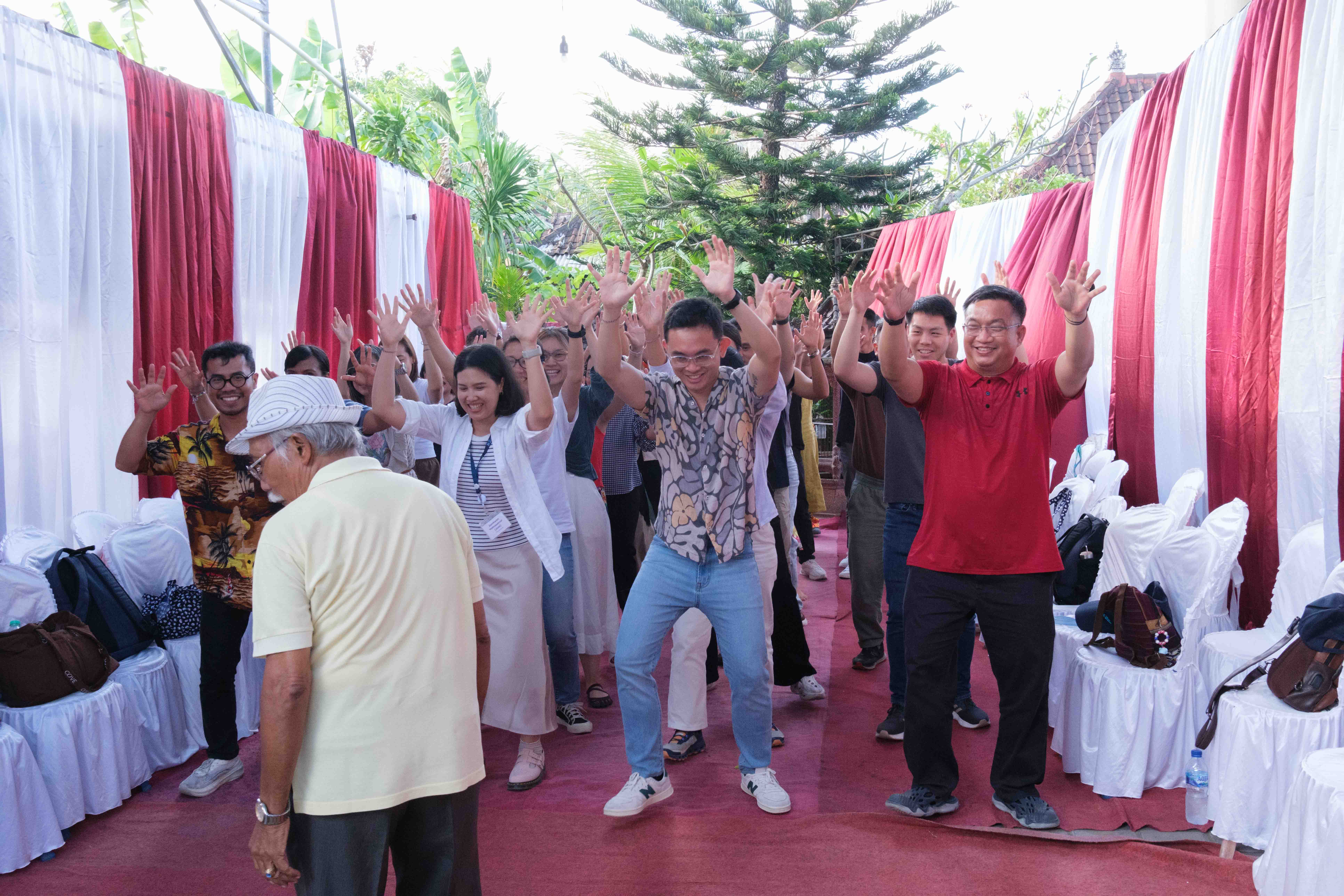
Fellows practicing Kecak Dance led by Professor I Wayan Dibia
The cultural immersion culminated in a Kecak Dance workshop led by Professor I Wayan Dibia, a Balinese artist and scholar. Fellows experienced firsthand the percussive chanting of “cak-cak-cak,” dynamic movements, and storytelling from the Ramayana, learning about the performance’s origins in ritual, its role as cultural expression and resistance, and its evolution. Through demonstration and active participation, Fellows engaged with the resilience, spirituality, and collective energy embodied in this iconic art form.
The next day, photographer and storyteller Rio Helmi shared visual narratives showing how culture shapes identity, power, and belonging, urging Fellows to see diversity as essential to building just, inclusive, and equitable societies, while activist-scholar Dédé Oetomo shared his journey from “patient to activist,” that took them from navigating health systems as a patient to becoming a leading voice of LGBTQ+ rights in Southeast Asia.
After the nourishing introductions in Bali and a session to build on second year project ideation, the cohort then split into two groups:
Kupang: Child Stunting and Structural Inequity
In Kupang, Fellows in Group 1 confronted the stark realities of child stunting — a crisis rooted in poverty, food insecurity, and fragile health systems.
First, two Senior Fellows led an onboarding session - Fransiska Sugi (2021, Indonesia) and Yustina Nita(2023, Indonesia) providing background and an open conversation around the issue of stunting in Kupang to allow a chance for cross-cohort learning and knowledge exchange.
The group then visited INOVASI (Innovation for Indonesia’s School Children) to learn how chronic stunting impacts children’s educational outcomes and how integrated nutrition and education programs, supported by multi-stakeholder collaboration, can reduce low literacy and learning delays while fostering holistic child development.
In Naibonat and Batakte, two local villages in Kupang, Fellows visited Posyandu (community health posts) to observe kader (community health volunteers) supporting maternal and child health through growth monitoring, home visits to families affected by stunting, and coordination with Puskesmas (community health centers) to address nutrition and care needs despite scarce resources.
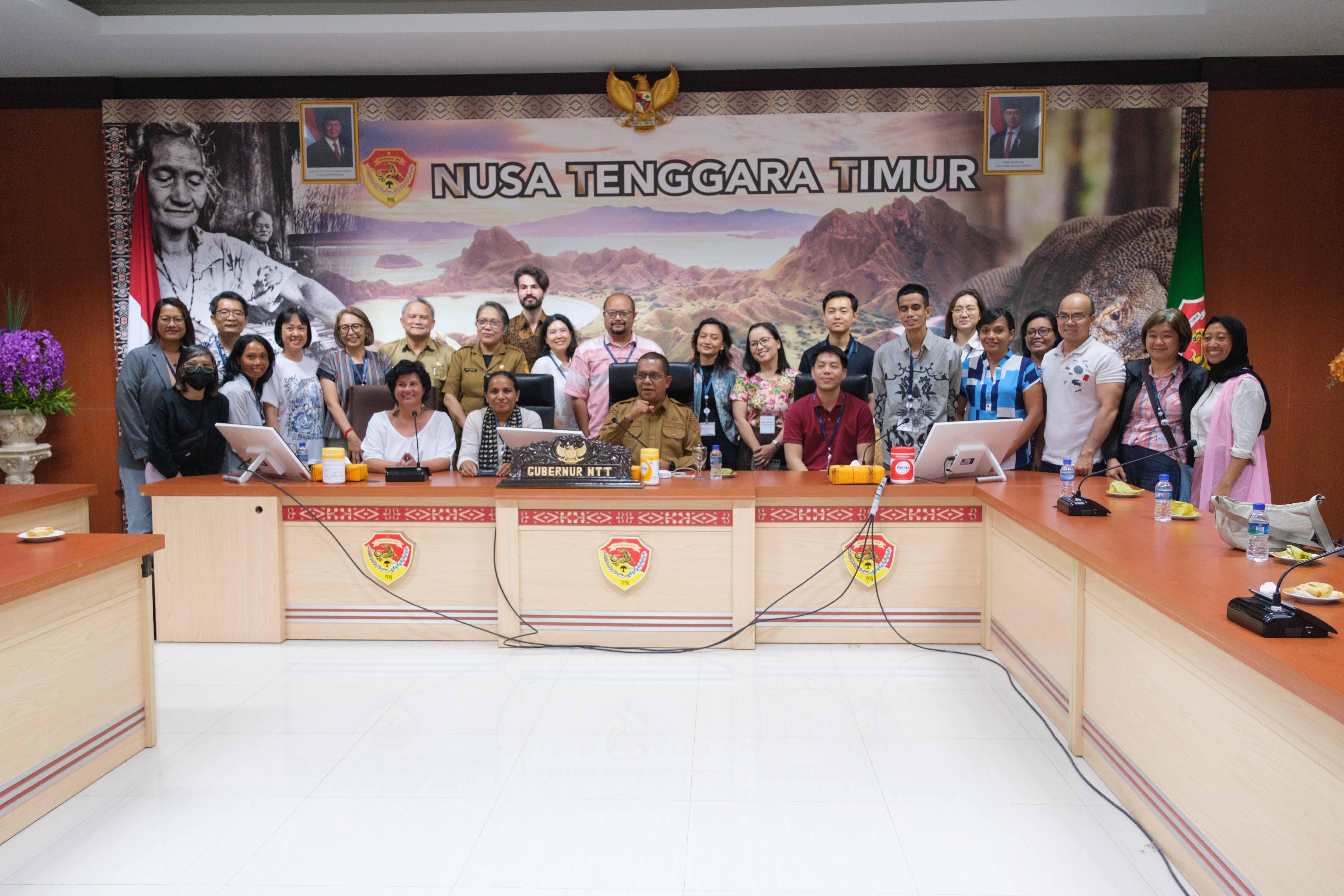
Fellows meet with the Governor of Nusa Tenggara Timur, and Emanuel Melkiades Laka Lena.
Fellows also met with the Governor of Nusa Tenggara Timur, Emanuel Melkiades Laka Lena, and local leader Ibu Emilia Julia Nomleni, whose advocacy for women and children underscored the role of empathy and trust in mobilizing communities.
Fellow Ye Naing Win (2025, Myanmar) reflected:
“The field visit highlighted that child stunting is driven largely by access to support services and an enabling environment. The mother I met understood her child's needs, yet structural barriers and limited support left her with few options. As a new father, this resonated deeply with me: a child's growth depends on both parental care and supportive systems. Addressing stunting requires equitable access and coordinated multi-sectoral action.”
Yogyakarta: Barriers to Access for Underserved Communities
Group 2 traveled to Yogyakarta to explore how marginalized populations — including urban poor, LGBTQ+ individuals, and street-based communities — navigate systemic barriers to health and social services.
First, the Fellows embarked on guided community walks, where Harapan Fian staff took them through neighborhoods to speak with residents who shared their daily realities, allowing participants to witness the lived experiences of urban-poor communities and better understand the systemic challenges they confront.
The group also visited Puskesmas Gedongtengen, a community health center that functions as a one-stop facility providing essential preventive, promotive, curative, and rehabilitative services, highlighting its role within Indonesia’s broader health system and its engagement with underserved communities.
Breaking into two groups, Fellows visited Yayasan Kebaya and the Waria Crisis Centre — community-based centers that integrate direct services, advocacy, and peer-led support for trans women and people living with HIV. At Yayasan Kebaya, founded in 2006, they learned how shelter, palliative care, and economic empowerment programs are paired with advocacy for trans rights and inclusion. At the Waria Crisis Centre, they saw crisis response and long-term support for elderly trans women experiencing stigma, violence, and poverty in action.
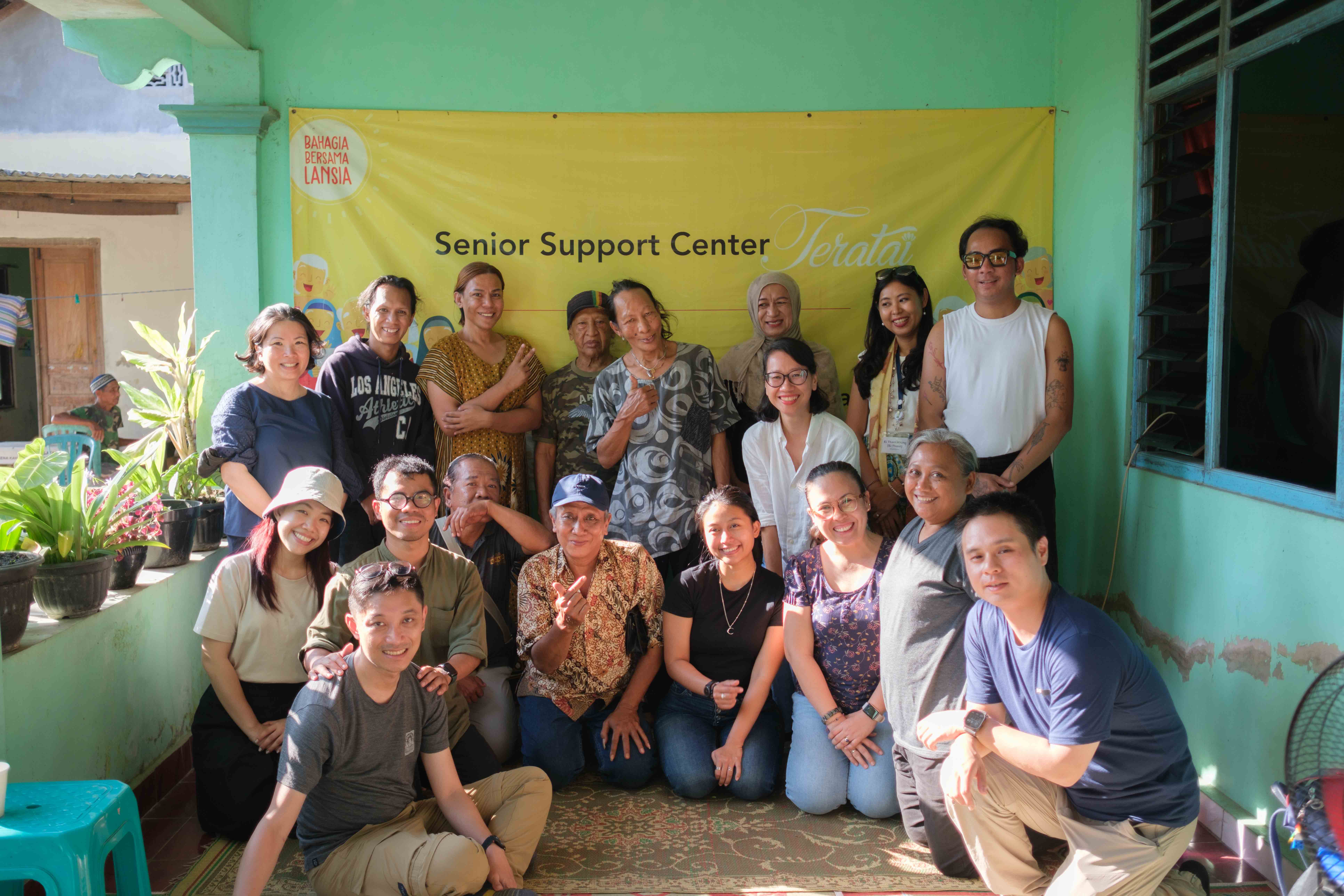
Fellows meeting at Perkumpulan Keluarga Berencana Indonesia (PKBI)
The group later came together for a visit to Perkumpulan Keluarga Berencana Indonesia (PKBI) Yogyakarta, an NGO committed to promoting maternal and child health, family planning, and sexual and reproductive rights through community engagement, counseling, research, and policy advocacy. Connected to PKBI is Klinik Adhiwarga, a youth-friendly sexual and reproductive health clinic. This visit deepened their understanding of the lived context behind the narratives explored in their case study and highlighted the role of community-based responses in addressing access and equity.
Reflecting on the end of the Yogyakarta visit, Gabriella Sandranila Suryadana (Sandra) (2025, Indonesia) said:
“I was grateful to see my country from a more contextual perspective. Amid structural challenges, I felt proud of the strong and well-targeted grassroots movements and community initiatives. The work of Harapan Fian, Yayasan Kebaya, and PKBI inspired me to reflect on my own community—whether our activities truly benefit marginalized groups and foster a more inclusive culture.”
Coming Full Circle
On the last leg, when both groups came back together in Bali, Fellows gathered to share personal moments and insights that bridged the beauty they had witnessed with the truths they had faced.
One Fellow, Ayu Kartika Dewi (2025, Indonesia), reflected while holding two objects: her ID card, symbolizing the privilege of access denied to many who lack official documents and thus face barriers to healthcare and support; and a piece of tenun (handwoven) fabric, whose vibrant beauty and high cost encapsulate intertwined realities of cultural richness and poverty.
Fellow Nguyen Thi Hoang Anh (2025, Viet Nam) wrote a poem, created on the final reflection day:
In the dark of the night
In the midst of the crowd
In an unfamiliar space
I feel lost and not so proud
I am scared
But then,
My hands are hold by a hand
I hear the waves softly crash
I feel the warmth of the touch
Under the moonlight
In your presence,
I am safe
Ferena Debineva (2025, Indonesia) captured the rhythm of the week in her “CAK” refrain — the chant of the Kecak dance repurposed as a litany of movement, learning, and change:
The sound of CAK echoed:
CAK
— to learning a language
CAK
— to a plate of warm fried rice
CAK
— to the sound of luggage wheels
CAK
— to the immigration office
CAK
— to crossing the ocean over and over again
CAK
— to letting the beach kiss your feet
CAK
— to the presentation and the confusion
CAK
— to words written and actions taken
CAK
— to the heat and the scorching sun
CAK
— to the unknown and to change
CAK to Bali
CAK to Jogja
CAK to Kupang
CAK CAK CAK CAK CAK CAK CAK
to see you again
When the two groups reunited in Bali for final presentations, they brought not only observations and analysis, but also renewed bonds. Each site visit group presented a structural reflection based on their case study and field experience, highlighting key observations on the structural determinants of inequity and the perspectives of the communities they engaged. Discussions on second-year project concepts were enriched by fresh insights from the field, linking local realities to broader strategies for equity.
Asia Trek 2025 closed with a farewell dinner under the Nusa Dua sky — a moment to honor the week’s shared journey and to carry forward its lessons. Between the island sunsets and the stories of resilience, Fellows left Indonesia with a deeper sense of purpose, ready to channel renewed energy into bold next steps for equity and inclusion.
